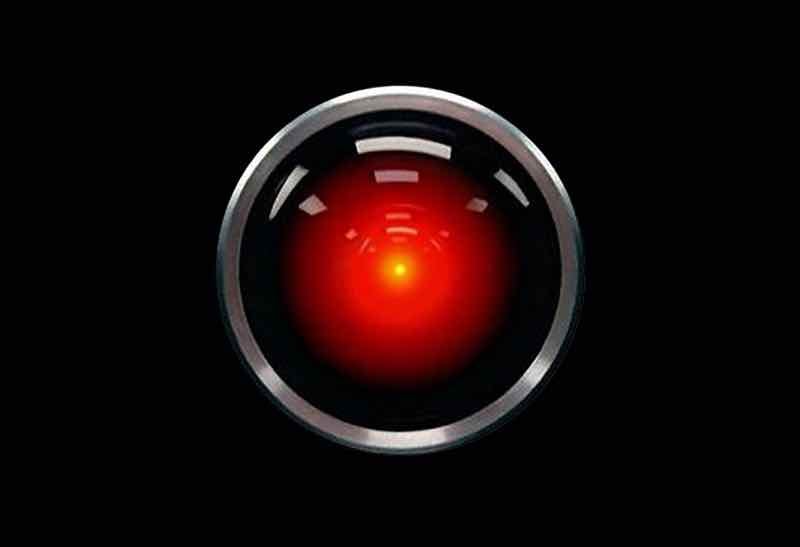None are more hopelessly enslaved than those who falsely believe they are free
“Objectively, there is, after all, no free will”
—Albert Einstein
No one other than the voice inside our heads gets to choose when making a decision, so it’s easy to understand why, overwhelmingly, the majority of us believe that the thing we refer to as “I” has total autonomy over how we live our lives.
Just as dreams feel real when we’re asleep, so too does free will when we’re awake. Its persistence is not evidence of its truth, but rather a reflection of our inability to see the mechanisms that control us.
Research consistently shows that unconscious brain activity precedes conscious awareness. In other words, by the time we think we’ve made a decision, the unconscious brain has already made it for us. We like to believe we’re in control—that the conscious “I” is calling the shots, but that’s an illusion. The real decision-maker is hidden, operating in the dark. The “I” isn’t in charge; it’s taking orders from a force beyond our control, by a puppet master we cannot see.
This invisible puller of strings, which represents our personality and ultimately who we are, is formed by a combination of nature and nurture. Our DNA, where we were born, and how we were raised were all predetermined; we had no choice—the polar opposite of freedom.
Not recognising our lack of freedom is what the German polymath, Johann Wolfgang Von Goethe meant when he said, “None are more hopelessly enslaved than those who falsely believe they are free”.
Whenever we have an urge to do something or make a decision, that’s our will, but there’s nothing free about it.
Machine domination
Ever since the beginning of human history, we have been inventing ways to do less and achieve more. At the root is our DNA’s built-in drive to conserve energy.
It started with the sharpening of sticks and stones, and it hasn’t stopped since. Beyond human hands, horses, camels, donkeys and dogs have helped share the workload. But in the blink of an eye, that’s all changed—we’ve gone from making fires to making machines—creations that now work not alongside us, but often in place of us.
It was the Industrial Revolution that marked the turning point. Human labour began yielding to mechanical power. The power loom was one example of that, revolutionising weaving and creating massive upheaval, which included rioting and destruction along the way.
The power-loom riots of 1826 took place in Lancashire, England, in protest against the economic hardship suffered by traditional handloom weavers caused by the widespread introduction of the much more efficient power loom.
Rioting broke out in the east of Lancashire on 24 April 1826. The first of 21 mills to be attacked was the Higher Grange Lane Factory in Accrington. The rioters marched on to Blackburn on the second day. On the third and final day of rioting the military were called upon to defend a mill in Chatterton against 3000 rioters, six of whom were shot and killed when the crowd refused to disperse after the Riot Act had been read to them.
The rioters were widely supported locally, and not only by fellow handloom weavers. Amongst those arrested in Blackburn, for instance, were labourers, a farmer, a confectioner, a butcher and even power-loom weavers. An eye-witness to the rioting in Chorley noted that "there can be no doubt that a great multitude of the townspeople were their friends. The women supplied the rioters with stones, concealing the missiles under their aprons."
Some of the soldiers sent to confront the rioters seemed sympathetic to their plight. One 16-year-old handloom weaver from Haslingden, Thomas Duckworth, records that on the first day of rioting the group he was marching with encountered a number of mounted soldiers approaching them with drawn swords. The officers in charge appealed to the mob to disperse, warning of the consequences if they did not. In Duckworth's own words:
Some of the old fellows from the mob spoke. They said "What are we to do? We're starving. Are we to starve to death?" The soldiers were fully equipped with haversacks and they emptied their sandwiches among the crowd. Then the soldiers left and there was another meeting. Were the power-looms to be broken or not? Yes, it was decided, they must be broken at all cost.
Wikipedia, Power-loom riots
Today, automation has begun to displace human labour across a wide range of sectors. Robots perform tasks once carried out by factory workers, while digital interfaces increasingly replace roles in the service industry.
At home, it’s the same story. We started with washing machines, vacuum cleaners, and electric irons. Now we have food delivery apps and voice-activated smart homes.
At its core, technology is about efficiency, not safety, not connection, not empowerment. If a tool doesn’t make life easier, no one wants it. The more effort that’s saved, the more attractive it is. That’s why we tap for an Uber instead of calling a cab, order takeout instead of cooking, and scroll TikTok instead of going outside. Convenience wins.
So we keep delegating. Cooking, cleaning, fixing things—skills we used to rely on fade out. All we’re left to do is navigate a touchscreen.
Technology replacing labour isn’t particularly new—it’s allowed us to focus on what sets us apart: The ability to think. But now, we stand at the threshold of a deeper transformation. As technology begins to take over not just our physical tasks but our cognitive ones as well.
Computer says no
In my late teens, I spent time trying to learn how to mix house music on a pair of turntables. It didn’t take long for me to realise that I wasn’t particularly good at it. Long story short, my DJ career never took off.
Mixing vinyl requires choosing tracks that work well together and manually adjusting the turntable speed to match the beats per minute (BPM) between two records, aiming for perfect alignment. Even being slightly off causes the beats to clash, which sounds terrible and will generate unwanted attention from the dancefloor.
Finding vinyl was also a challenge. It meant digging through obscure record stores to try and discover something unique.
Since then, the landscape has changed dramatically. Turntables and vinyl have largely been replaced by digital mixers and downloadable MP3s. What once required effort and technical skill can now be done from a laptop, and music can be downloaded without stepping outside.
Many of the skills that once defined DJing are now automated. Software can match BPM with precision, reducing the chances of error. Where DJs once relied on instinct and experience to choose tracks that complemented each other, modern tools can analyse a song’s musical key and make suggestions in real time.
There is still some skill involved in digital DJing, but it’s undeniable that technology has lowered the barrier to entry. What was once a difficult and manual process can now be imitated with the push of a button. It’s possible to fake an entire set; press a few buttons, mimic turning dials, wave your arms in the air, and most audiences won’t notice the difference.
This shift is how individuals with little musical background have managed to secure high-profile DJ gigs, based more on celebrity status than technical ability.
Digital DJing is just one example of a broader trend, where skills once developed through experience and intuition are increasingly replaced by automation. And it’s a trend that’s only accelerating.
It’s not unreasonable to assume that any task requiring human thought today will, eventually, be handled by a computer.
Our drive to conserve mental energy is as deeply ingrained as our desire to reduce physical effort. This isn’t a modern phenomenon. Just as we invented tools to spare our muscles, we now build machines to spare our minds. From the abacus to the calculator, paper maps to Google Maps, learning new languages to relying on translation apps, memorising plants and birds to using recognition software.
We’re heading towards a world where thinking itself is becoming optional.
Losing will
It’s understandable why we have trusted machines with tasks involving complex and precise calculations. When it comes to tasks rooted in logic and exactness, it is clear that we cannot compete. In such areas, the superiority of machines is indisputable.
A similar case can be made for delegating physically demanding and hazardous labour. Tasks such as mining, construction, or heavy industrial work often involve extreme conditions, repetitive strain, and significant risks to human health and safety. In these environments, the argument for automation becomes just as compelling as it is for computational tasks.
A point of concern emerges when we begin outsourcing not just tasks, but our own decision-making. The danger is not in the use of machines, but in the gradual surrender of our responsibility to think, choose, and forge opinions.
Technology’s impact on manual and computational labour is clear to see—it’s visible in every warehouse, factory, and spreadsheet. Technology's influence over how we think and decide is harder to detect, though. Take something as simple as online reviews.
Before the internet, reviews existed in newspapers, magazines, or word of mouth, but they weren’t omnipresent. Now, we’re saturated with opinions. We rarely choose without consulting the aggregated judgments of strangers. We’ve become dependent on star ratings and review scores, hesitant to make even the smallest decision without external validation.
Watching a film without checking its Rotten Tomatoes score feels reckless. Choosing a restaurant without first consulting TripAdvisor is almost unthinkable. So is it still us that’s choosing the film or restaurant?
In a previous employment, I was exposed to how the online review industry works, which I can only describe as unscrupulous and borderline fraudulent. Review manipulation is rampant, not always through outright fake reviews, though those exist, but through subtler tactics. Happy customers are easily identified and encouraged, sometimes incentivised, to leave positive feedback. These glowing reviews are a biased sample that distorts the overall picture, raising average scores and masking less favourable experiences.
As a result, we’re trading spontaneity and personal intuition for conformity. We don’t rely on gut instinct or the thrill of an unplanned discovery—we follow the crowd, and the crowd is being led by those who game the system. In doing so, we become participants in a cycle of manipulation.
Some of my favourite films and books have average or mediocre review scores. Had I checked those ratings beforehand, I might never have given them a chance. Once you’ve seen a low score, you can’t unsee it. It colours your expectations and diminishes your openness. We like to believe we’re independent thinkers, but the truth is, we’re easily swayed.
And this isn’t just about movies or meals. For those of us deeply immersed in social media, the influence extends even further. Algorithms shape our emotions, preferences, and priorities. They tell us what to care about, what to ridicule, what to celebrate, and what to be outraged by. We find ourselves laughing at the same memes, getting angry at the same headlines, and echoing the same opinions.
In the not-so-distant future, you’ll step into a self-driving car, ask for a well-rated Mexican restaurant nearby, and it’ll take you there, book a table and order your meal. This is the frictionless world Big Tech wants us to live in, where we don’t have to do or think.
As with most things in life, the answer isn’t total rejection or blind embrace—it’s balance.
Technology, like alcohol, can enhance life—up to a point. A glass of wine can enrich a moment; a couple of bottles a day will wreck it. The same goes for food, entertainment, and even ambition. What begins as a tool for improvement can become a source of dependence, isolation and distortion. Technology has given us power and convenience, but we’re being dehumanised as our thinking is increasingly influenced by algorithms and the vast amounts of content we consume.
The will that originates from our unconscious mind, which is forged from our DNA, society and life experiences, is increasingly being replaced by the will of app developers.
Just as Big Food exploits our instincts by hooking us on sugar and tasty treats, Big Tech exploits our craving for convenience. Sugar once signalled calorie-rich survival; now it fuels addiction. Convenience once helped us conserve energy in a harsh world; now it hooks us and makes us passively stare at screens. Big Food makes us fat. Big Tech numbs our brains, stripping our lives of challenge and purpose.
As the prominent media theorist, John M. Culkin, once said, “We become what we behold. We shape our tools, and thereafter our tools shape us.”
Not one of us is free, but some are less free than others.





Hang on, what are we talking about here? Free will or technological progress? They're pretty orthogonal.
The problem with the 'Free Will' argument is that it descends into really weird definitions of 'free will' that only full time philosophers have the time to get to grips with. I take my cue from mindfulness. I'm on board with the fact that I have a subconcious that bubbles stuff up the whole time. But in the same way that the concious component can observe these thoughts, it can also make decisions on how to act in relation to them. For me, intuitively, just having the ability to make a decision about something equates to 'free will', whether or not that something originated automagically in my subconcious. But then you read this and think that you don't understand the question -> https://www.theguardian.com/news/2021/apr/27/the-clockwork-universe-is-free-will-an-illusion.
As Box once said, 'all models are wrong, but some are useful' - if I believe the universe is deterministic (it isn't according to quantum mechanics) and I extend that to 'free will being an illusion' well that mental model just isn't useful when I'm trying to decide what to have for breakfast.
Technological progress has forever been thus. In the same way that a mechanised loom seems hopelessly quaint and benign today (as does a book for that matter, with parents wishing their kids would use them) - in their time they were hugely dangerous and utterly terrifying. We'll feel the same way about phones when we have neural implants and hark back to the good old days of doom-scrolling. Things change, young people adapt, old people get apoplectic. Its just the way of things. Genuine problems, say the subject of AI ethics, as opposed to natural and continuous change will attract effortful thinking proportionate to there seriousness.